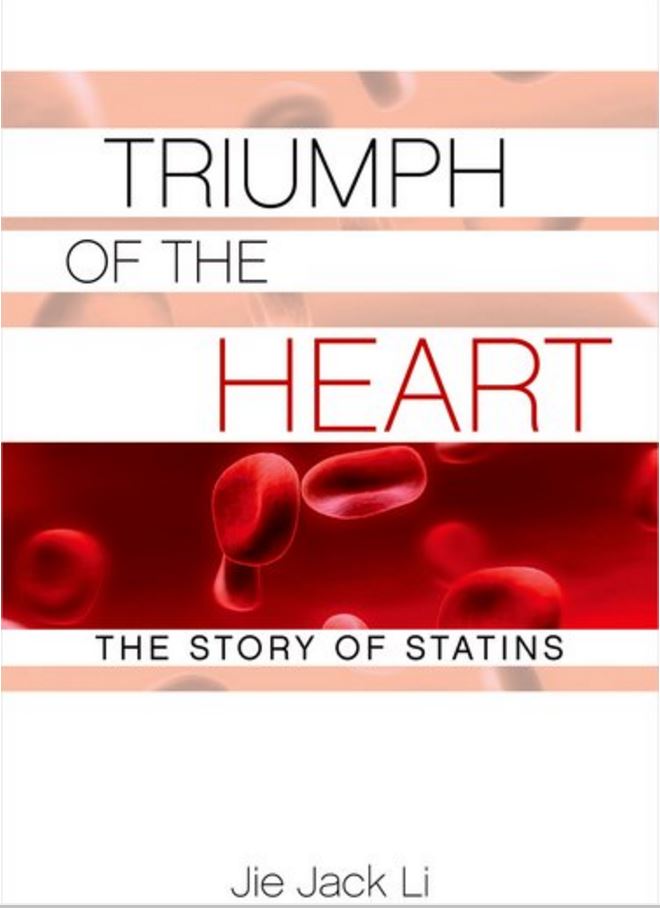Category: Pharmaceuticals
Recombinant Human Antithrombin – Milking Nanny Goats for Big Bucks
Antithrombin deficiency is a hereditary disease causing low levels or defects of antithrombin, a blood protein required for controlling clot formation. Patients are at risk of blood clots, organ damage, and death. They usually have to take oral anticoagulant drugs like warfarin for life. During high-risk procedures like surgery or childbirth, oral anticoagulants must be discontinued to minimize the chance of bleeding...
All Medicines Are Poison!
That’s the title of a new book by Melvin H. Kirschner, M.D. When I first saw the title, I expected a polemic against conventional medicine. The first line of the Preface reassured me: “Everything we do has a risk-benefit ratio.” Dr. Kirschner took the title from his first pharmacology lecture in medical school. The professor said “I am here to teach you...
An open letter to Dr. J. Douglas Bremner
Peter Lipson wrote a post last week entitled Before You Trust That Blog…, which was a criticism of Dr. J. Douglas Bremner’s blog Before You Take That Pill. Dr. Bremner was not pleased, and posted a rebuttal entitled Response to Peter Lipson MD of “Science” Based Blogs, My Blog Does Not Suck, Yours Does. Given the kerfuffle and my role as managing...

“Oh, come on, Superman!”: Bill Maher versus “Western medicine”
I realize that I’ve spent a fair amount of verbiage (to put it mildly) expressing my frustration with celebrities whose support for pseudoscience and even outright quackery endanger public health. The two most frequent targets of the wrath, sarcasm, frustration, and puzzlement of me and my partners in crime at SBM have been Jenny McCarthy and her boyfriend Jim Carrey for their...
Off-Label Use of Prescription Drugs
A recent survey of 599 primary care physicians and 600 psychiatrists found that: The adjusted response rate was 47%, respondents were similar to non-respondents, and physicians commonly prescribed the drugs examined. The average respondent accurately identified the FDA-approval status of just over half of the drug-indication pairs queried (mean 55%; median 57%). Accuracy increased modestly (mean 60%, median 63%) when limited to...
Is Tylenol Safe?
Tylenol (acetaminophen, also known as paracetamol outside the US) has been in the news recently. Most of the stories I’ve seen have been accurate, but I’ve run across a couple of people who misunderstood what they read. I thought I’d try to put the record straight. An FDA advisory panel has recommended reducing the maximum allowed single dose from 1000 mg to...
Naturopathic Prescribing: The Dark Side Beckons
I am a terrible Oregon chauvinist. I think there is no better place to live on the planet. Period. Great natural beauty, not a lot of people, best beer ever and no pro football team. Oregon is both casual and tolerant. It is safe to say that dressing up in the Pacific NW means tucking your t shirt into your jeans. And...
Counterfeit Drugs: A Growing Global Health Crisis
A resistant strain of bacteria –created by partially effective counterfeit antibiotics – doesn’t need a VISA and passport to get to the U.S. – Paul Orhii, National Agency for Food and Drug Administration and Control, Nigeria I attended a conference in DC yesterday called, “The Global Impact of Fake Medicine.” Although I had initially wondered if homeopathy and the supplement industry would...
Is IV Sedation Over-Used?
We criticize alternative medicine for not being evidence-based, and they criticize conventional medicine in turn, saying that much of what conventional medicine does is not based on evidence either. Sometimes that criticism is justified. I have run across a conventional practice that I suspect began because it sounded like a good idea, but that never was adequately tested and is not carefully...

Book Review: Triumph Of The Heart, The Story Of Statins
Triumph of the Heart, as its name does not suggest, is about science. The book’s author, Jie Jack Li, is a medicinal chemist who meticulously reviews the history relevant to the discovery of lipid-lowering drugs. He spares no details, even recounting the amusing quarrels and quirks of the scientists engaged in the “apocryphal showdowns” leading to the manufacture of cholesterol in a...

